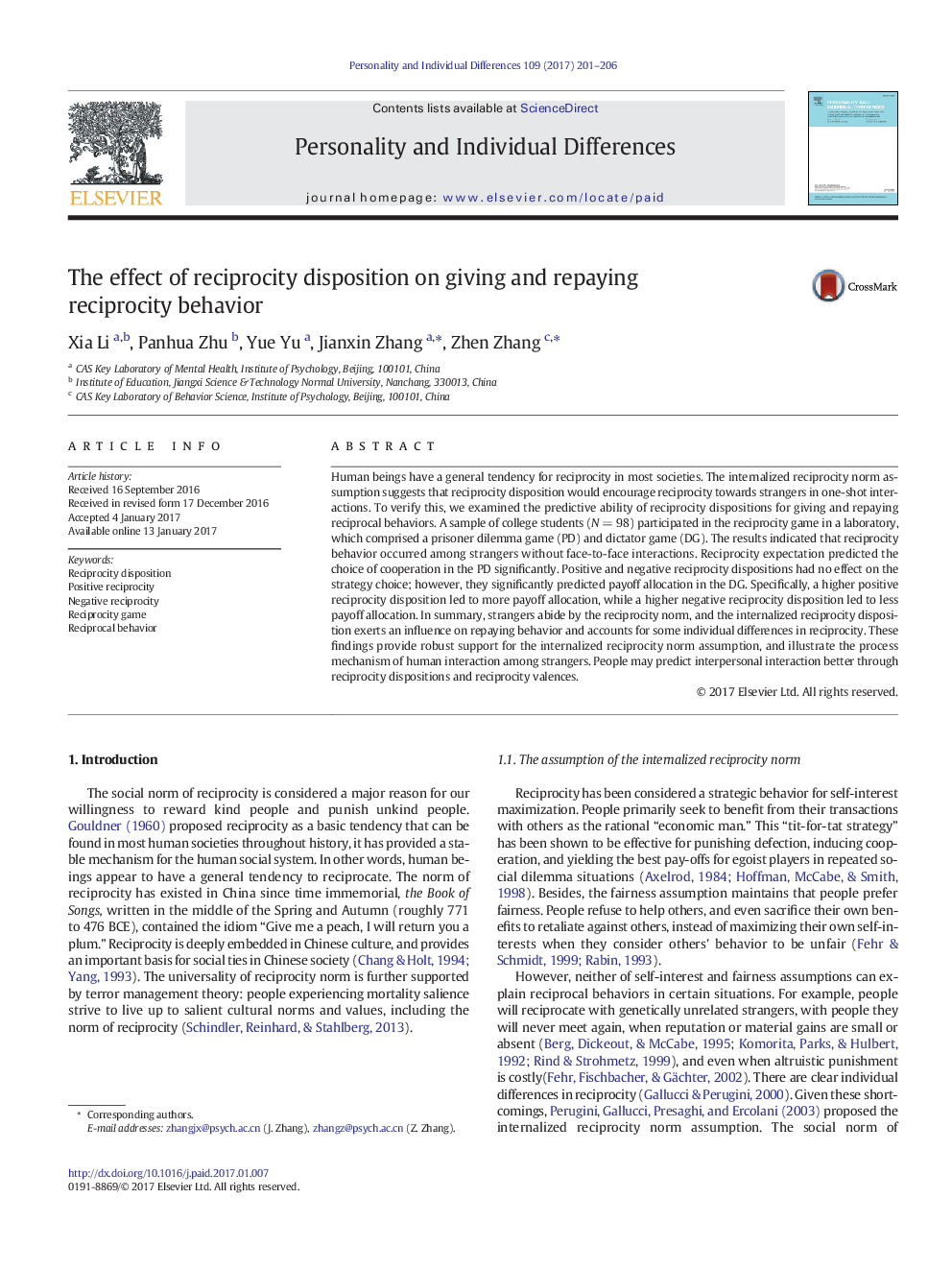ترجمه فارسی عنوان مقاله
تاثیر رویه متقابل بر ارائه و بازپرداخت رفتار متقابل
عنوان انگلیسی
The effect of reciprocity disposition on giving and repaying reciprocity behavior
| کد مقاله | سال انتشار | تعداد صفحات مقاله انگلیسی |
|---|---|---|
| 154150 | 2017 | 6 صفحه PDF |
منبع

Publisher : Elsevier - Science Direct (الزویر - ساینس دایرکت)
Journal : Personality and Individual Differences, Volume 109, 15 April 2017, Pages 201-206
ترجمه کلمات کلیدی
روابط متقابل، متقابل مثبت، معافیت منفی، بازی متقابل، رفتار متقابل،
کلمات کلیدی انگلیسی
Reciprocity disposition; Positive reciprocity; Negative reciprocity; Reciprocity game; Reciprocal behavior;

